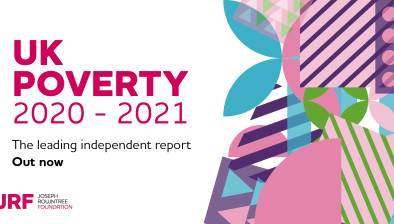Nearly two-thirds of children in poverty ‘live in working families’
 Almost two-thirds of children in poverty are living with parents who work, the Institute for Fiscal Studies (IFS) has found.
Almost two-thirds of children in poverty are living with parents who work, the Institute for Fiscal Studies (IFS) has found.
A new study by the research institute concluded that while levels of absolute child poverty were unchanged between 2009/10 and 2013/14, the proportion living in a working family grew from 54 per cent to 63 per cent as wages lagged behind inflation.
The thinktank warned that child poverty and inequality are set to rise as a consequence of the UK government’s planned tax and benefit cuts, which will favour high earners and hit the poor.
Recent declines in income inequality would be reversed, while currently static child poverty rates would begin to increase, the IFS said.
“The recent stability in absolute income poverty among children has masked important and offsetting trends,” said Chris Belfield, a research economist at the IFS, and an author of the report. “Since 2009–10, a fall in the number of workless families has acted to reduce poverty, but this has been offset by a substantial rise in in-work poverty. This largely reflects the wider nature of the labour market since the recession: robust employment and weak earnings.”
Robert Joyce, a senior research economist at the IFS and another author of the report, said: “The government has recently emphasised worklessness as a cause of poverty. This makes sense, but tackling low living standards will be difficult without improvements for working families too.”

Julia Unwin, chief executive of the Joseph Rowntree Foundation, which funded the report, added: “A strong economy and rising employment have masked the growing problem of in-work poverty, as years of below-inflation wage rises have taken their toll on people’s incomes. The upcoming minimum wage rise will help, but many low-income working families will still find themselves worse off due to tax credit changes. Boosting productivity and creating more jobs which offer progression at work is vital to make work a reliable route out of poverty.”
A government spokesman said that the number of people in in-work poverty is 200,000 lower than at its peak in 2008/09.
The spokesman said: “This report recognises that rising employment has led to increases in the proportion of children living with working parents. And we know that the proportion of people living on low incomes is at the lowest level since the mid-1980s.
“Work remains the best route out of poverty and we want to ensure that when people go out to work they are paid a decent wage and get to keep more of what they earn. That is why we have introduced a new National Living Wage and are increasing tax thresholds so Britain can move from a low wage, high tax and high welfare economy to a higher wage, lower tax and lower welfare society.”








